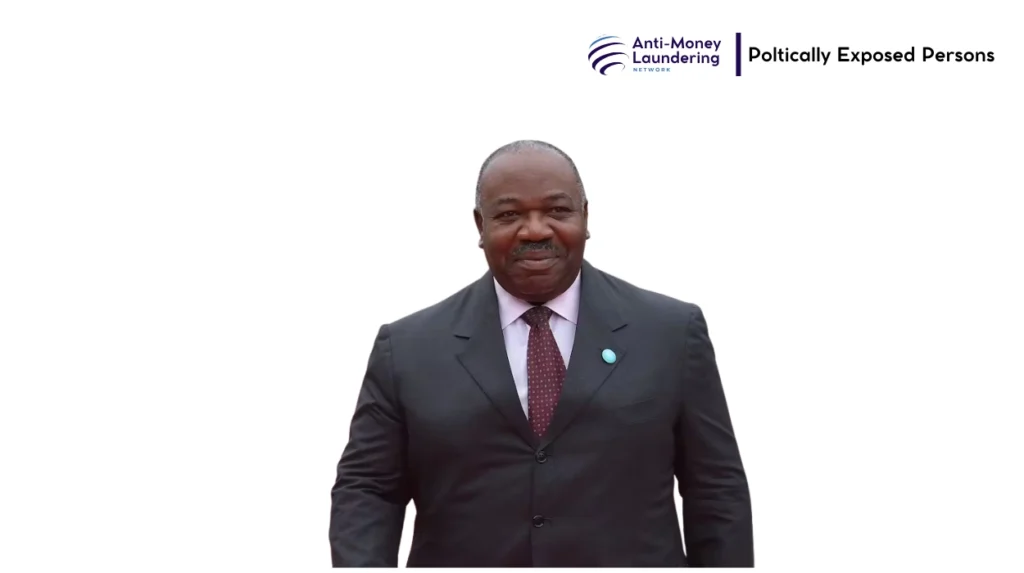Ali Bongo Ondimba, also known as Ali Ben Bongo, is a prominent Gabonese political leader who served as the third president of Gabon from 2009 until he was overthrown in August 2023 following a military coup. He is the son of Omar Bongo, who ruled Gabon for over four decades. Ali Bongo’s presidency was marked by efforts to modernize the country and diversify its economy, but also faced controversy over election irregularities and allegations of corruption. Despite health issues and political unrest towards the end of his term, he remained a central figure in Gabon’s political landscape for nearly 14 years.
Early Life and Background
Born Alain-Bernard Bongo on February 9, 1959, in Brazzaville, Republic of Congo, Ali Bongo grew up within Gabon’s influential Bongo family. His mother, Patience Dabany, was a celebrated Gabonese singer, adding cultural prominence alongside the family’s political stature. Ali Bongo’s early life was shaped by his father’s decades-long presidency. He received education abroad, including studies in law, supporting his eventual career in politics. His upbringing prepared him for leadership within Gabon’s ruling elite, as he was groomed to continue his family’s political dynasty.
Personal Life: Family and Spouse
Ali Bongo is married to Sylvia Bongo Ondimba, who has played a significant role in Gabonese social and philanthropic efforts. The couple has children, including their son Noureddin Bongo Valentin, who has been involved in Gabon’s political scene. The Bongo family’s influence extends beyond politics into business and social domains, shaping Gabon’s elite society. Sylvia Bongo herself has been subject to legal scrutiny amid allegations tied to the family’s financial dealings. The Bongo family’s longstanding prominence underscores the dynastic nature of Gabon’s political system.
Career and Achievements
Prior to his presidency, Ali Bongo served in key government roles, including Minister of Foreign Affairs from 1989 to 1991 and Minister of National Defense until 2009. After his father’s death, he was elected president in 2009, ensuring the continuation of the Bongo dynasty. His leadership focused on modernizing Gabon’s oil-dependent economy and promoting regional cooperation, although his administration was criticized for authoritarian practices and electoral misconduct. His 2016 reelection sparked protests due to widespread doubts about the integrity of the vote. The military coup in 2023 ended his presidency after years of political tension.
Lifestyle, Wealth, and Assets
Ali Bongo’s lifestyle has often been a subject of public fascination and scrutiny. His family is reputed to possess extensive wealth, including ownership of luxury real estate and involvement in offshore financial schemes revealed by investigative leaks such as the Pandora Papers. While official details on his net worth are not public, analysts suggest substantial wealth accumulated through control over Gabon’s oil revenues and state resources. Reports describe lavish palaces and an elite lifestyle that contrast sharply with Gabon’s broader economic challenges, further fueling public debate about transparency and corruption.
Influence, Legacy, and Global Recognition
Ali Bongo’s legacy is complex, representing continuity of a political dynasty as well as a controversial figure whose rule elicited both acclaim and criticism. Internationally, he was recognized for environmental and economic initiatives. However, his administration was simultaneously criticized for perpetuating corruption and limiting political freedoms. The long shadow of his father’s rule loomed large over Gabon’s political institutions, complicating efforts to reform governance. Overall, his impact on Gabonese politics has been substantial but contentious.
Financial Transparency and Global Accountability
As a politically exposed person, Ali Bongo exemplifies challenges related to financial transparency in governance. Multiple investigations have unveiled links to money laundering and offshore companies used to conceal assets. His family’s involvement in these financial networks highlights systemic weaknesses in Gabon’s institutions and the broader risks of impunity among ruling elites. The lack of transparency and oversight during his tenure raises ongoing questions about accountability in Gabonese public life.
FAQs
Where is Ali Bongo Now?
Following the August 2023 military coup, Ali Bongo was detained briefly but later released for medical reasons. He remains out of political power, with reports indicating that he relocated to Angola with his family in 2025. His current status is closely monitored as Gabon navigates a transitional phase under new leadership.
Who is Ali Bongo’s Wife?
Sylvia Bongo Ondimba is Ali Bongo’s wife, known for her activism and leadership in social causes within Gabon. Her role extends beyond the private sphere into public philanthropic work. She has faced legal challenges linked to allegations of financial impropriety following the Bongo family’s fall from power.
Who is the New President of Gabon?
After the coup, Brice Oligui Nguema, a cousin of Ali Bongo and commander of the Republican Guard, took control of Gabon’s government. He leads a transitional military junta with promises of reform and restoring democratic governance, marking a break from the Bongo family’s long-standing rule.
What is Ali Bongo’s Catchphrase?
During the political crisis, Ali Bongo appealed to his supporters with calls to “raise their voice” and “make noise,” seeking domestic and international backing. These phrases became symbolic of his attempts to resist the military takeover and maintain legitimacy.
What is the President’s Salary in Gabon?
Official figures regarding the president’s salary in Gabon are limited, but it is generally considered modest compared to the vast fortunes associated with the office through informal gains. The Bongo family’s wealth largely stems from control over natural resources rather than official remuneration.
What Happened in Gabon?
The 2023 coup ended the Bongo family’s 56-year dominance, triggered by allegations of electoral fraud and corruption under Ali Bongo’s rule. The military cited governance failures and social unrest as justification for seizing power, signaling potential shifts in Gabon’s political order.
Ali Bongo Ondimba’s life and career highlight the complexities of dynasty politics in Africa. While promoting modernization and economic initiatives, his presidency was overshadowed by controversies around governance and financial opacity. His removal from power underscores the challenges of accountability in entrenched political systems. His legacy will continue to shape Gabon’s political discourse and efforts toward transparency and reform.

